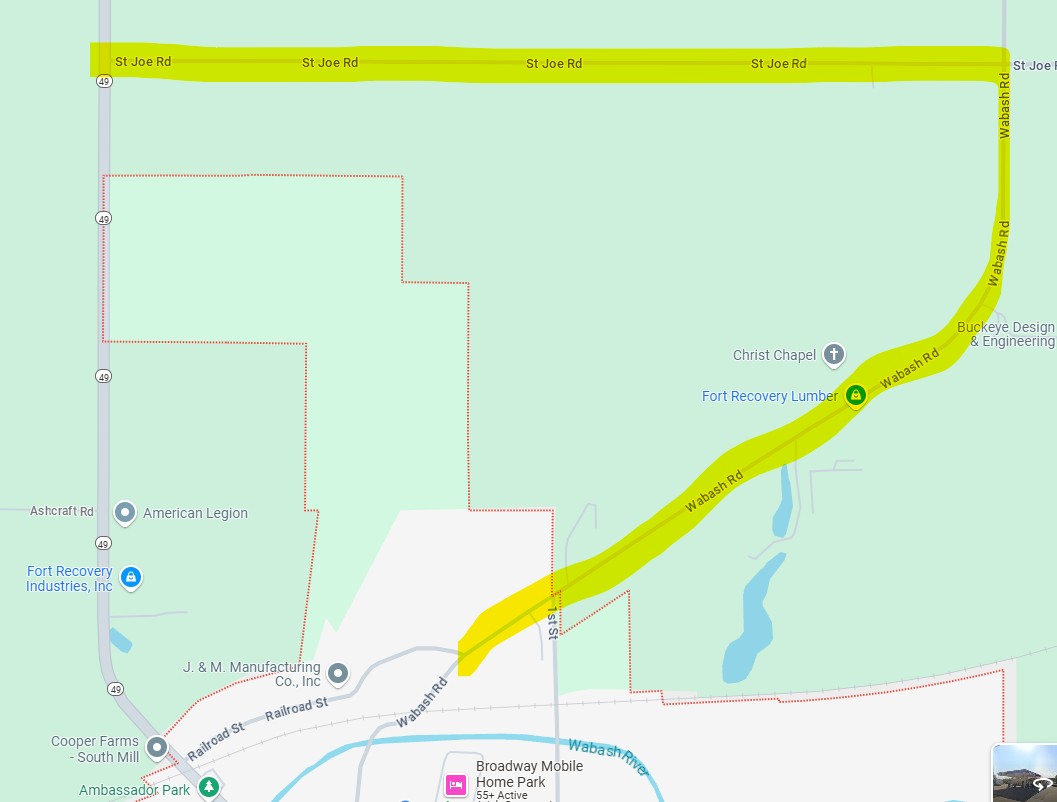OPEN FOR WHEAT - PLEASE CALL BEFORE DELIVERY.
Until further notice, all deliveries of corn/ingredients going to the East Mill need to enter coming off of Wabash Road.

The North Mill will be OPEN the following Saturdays:
July 26th
August 9th & 23rd
September 13th & 27th
ALL INCOMING CORN NEEDS TO BE 17.0 AND UNDER.
Due to real time VOM testing, starting September 3rd the North Mill will stop receiving corn at 4:15pm.
We are implementing a new text messaging system to be used for closing bids and hours/updates/events/bid changes, etc. If you would like to receive this, please contact Kenzie Kaiser.
Email - kenziek@cooperfarms.com
Office phone - 419-375-4619
Cell phone - 937-680-1443
NOTICE: DUAL WHEELED TRACTORS WILL NOT FIT ON OUR SCALES!
Effective, Wednesday, September 14th, 2022 ALL MILLS will NOT accept any belt trailers or dump trailers. - NO EXCEPTIONS
Sign Up Today for Mobile Alerts
If you signed up to receive alerts or cash bids through email and you aren't seeing them, please check your junk/spam folder. If you still don't see them, please give us a call.
| North Mill | East Mill | South Mill | |
| Monday | 7:30am - 4:15pm | 6:00am - 3:30pm | CLOSED |
| Tuesday | 7:30am - 4:15pm | 6:00am - 3:30pm | CLOSED |
| Wednesday | 7:30am - 4:15pm | 6:00am - 3:30pm | CLOSED |
| Thursday | 7:30am - 4:15pm | 6:00am - 3:30pm | CLOSED |
| Friday | 7:30am - 4:15pm | 6:30am - 3:30pm | CLOSED |
| Saturday | CLOSED | CLOSED | CLOSED |
| Union City | Paulding | ||
| Monday | 7:15am - 3:00pm |
CLOSED |
|
| Tuesday | 7:15am - 3:00pm | CLOSED | |
| Wednesday | 7:15am - 3:00pm | 8:00am - 4:00pm | |
| Thursday | 7:15am - 3:00pm | 8:00am - 4:00pm | |
| Friday |
7:15am - 2:30pm |
CLOSED | |
| Saturday | CLOSED | CLOSED |
|
North Mill 3310 St Rte 49 Ft. Recovery, OH 45846 419-375-4619 |
East Mill 2351 Wabash Rd Ft. Recovery, OH 45846 419-375-4119 |
South Mill 2321 St Rte 49 Ft. Recovery, OH 45846 419-375-4116 |
|
Union City Mill 210 E Elm St Union City, OH 45390 937-968-6975 |
Paulding Mill 325 W Caroline St Paulding, OH 45879 419-399-2766 |
DP Rate
Effective 9-16-24
$0.30 Dump Charge, and a $0.09 per bushel per month fee starting January 1, 2025.
Must be priced by September 1, 2025.
HTA Contracts
$0.05 fee on HTA contracts. HTA contracts can be rolled in the same crop year for a $0.02 per bushel charge plus market carry.
~Settlements can only be held for one calendar year from the date of delivery.~
***Prices are subject to change***
** Our Paulding Facility is rejecting corn with Vomitoxin greater than 4.5ppm **
1. If you want to make a charitable contribution to a church or organizatin, we need to know when the grain is weighed in. If we are told after the fact, there will be a $25 fee.
2. For paying and auditing purposes, could you please limit the number of splits on one ticket to 4 customers.
3. Please verify name(s) and address (North Mill) before leaving.
4. Customer's with liens will not be eligible for advances.
*Are you interested in target bids? We can set an alarm and let you know when it hits. Please give us a call if you are interested.*

